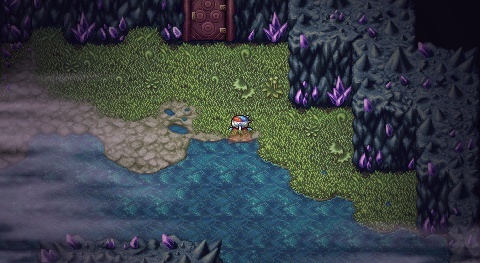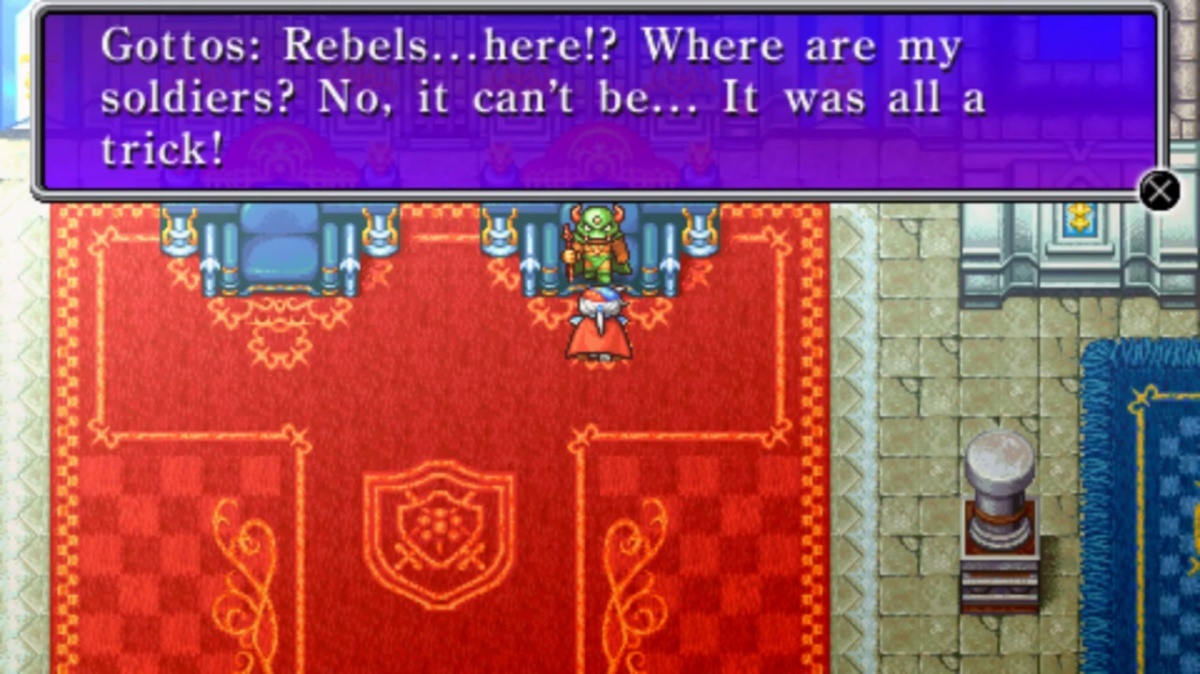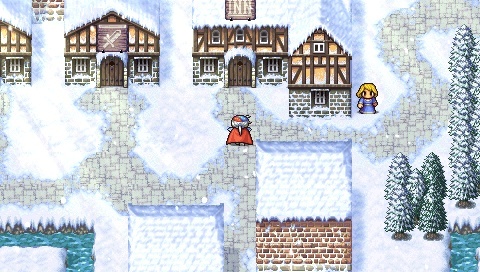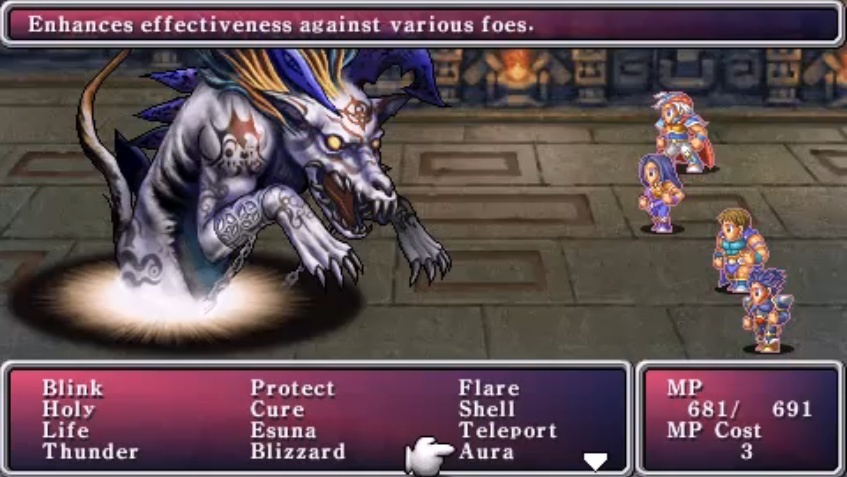Final Fantasy II (PSP) Review
By Renan Fontes  18.12.2017
18.12.2017

Following the surprise success of Final Fantasy, it was only natural that Square would want to move forward with a sequel. Final Fantasy II, which released exactly one year after the original, took the humble RPG and added new twists to the format. A predetermined cast, a more involved narrative, and an experimental levelling system served as new staples to distinguish FFII from its predecessor. While interesting concepts, it's no surprise they led to the sequel's black sheep status within the fandom. In changing so much from the original, it makes sense why some fans would feel alienated. Nearly thirty decades have passed, however, and that's enough time to justify re-evaluating one of the most polarizing sequels of all time.
Final Fantasy's first moment is iconic in just how casual it is. There's no epic fanfare, no title crawl, and no clear direction of where to go or what to do. It simply places the party near the first town and begins. Final Fantasy II, on the other hand, goes for the direct opposite. Instead of placing the party on the overworld with no context, they are placed in-battle.
This opening, while simple, was one of the smartest things Square could have done to differentiate their first sequel from its predecessor. Immediately, players can tell that this isn't going to be four heroes of light searching for crystals a second time around. Besides the opening battle, nothing says that better than the fact that the main cast is predetermined this time around. Their names can be changed, but unique sprites and portraits make it clear there's going to be more emphasis on narrative here.

As fantastic as this introduction is, the quality doesn't last long. Where the first game was a more classically fantastical adventure, this one is more politically charged in its tone and writing. The party is orphaned, an empire is oppressing a nation, and a revolution is brewing in a quaint town. In theory, this is a great way of distinguishing Final Fantasy II from the original. In execution, all this change does is lose almost all the charm that made Final Fantasy great.
The stakes have been raised, but only superficially. The empire is a generic antagonistic nation, the rebellion is struggling, but not so much that their status is dire, and Emperor Mateus' motivations never evolve past evil for the sake of evil. There's little permanency to the threat the empire poses. Garland was not a particularly interesting villain, but he at least had an interesting twist that changed how the story was perceived while directly affecting the party.
For a cast with defined identities and a canonical backstory, none of the three main party members undergo a character arc. Firion is a generic hero, Maria is the token female party member, and Guy is a meathead. Nobody grows, nobody is truly challenged, and they end the story the same way they begin. That said, guest party members do tend to fare a bit better in terms of characterisation.

Since there are only three permanent party members, the fourth slot is open for temporary team-ups. Now a series staple, guest party members first appeared here with quite a bit of success. Unlike the main trio, whoever's in the fourth slot tends to go through a significant, if short, arc where they leave the party fundamentally changed (or dead.) Although this doesn't solve the issue of a static main cast, it does at least mean some characters have weight within the narrative.
While the newfound emphasis on story is a big change from Final Fantasy, it is not the big change. That distinction belongs to the levelling system. Instead of earning experience from battles and levelling up normally, stats are individually increased through combat. Doing damage with a sword will make sword wielding stronger, using magic will make it more potent, and taking damage will either increase defence or HP. On paper, this is a great idea that encourages customization within the party, and, to its credit, it almost succeeds. It is legitimately fun building each character into their own role, being able to adapt to any and every situation. At the same time, however, levelling up is in no way consistent, painfully tedious, and easily exploitable.

Perhaps because levelling up can take so long, random encounters feel far more frequent than they did previously. Every few steps will lead into a battle like clockwork. It should be noted that battles are more engaging this time around simply thanks to how much the party can accomplish via customization, but getting to the point where every battle feels fun takes far too long. Random encounters on the overworld don't feel too frustrating since most overworld monsters are easy to get through, but the dungeons do suffer because of it - which is a shame considering the dungeon design has seen a massive improvement.
Dungeons in Final Fantasy felt rather one note since they were all mostly linear with no real opportunity to explore extensively. Final Fantasy II remedies this with large, elaborate dungeons that offer varied routes that lend themselves to exploration. A dungeon feels like a proper challenge that needs to be overcome. Unfortunately, the random encounters make it difficult to fully appreciate just how much Square improved this aspect of the series.
While novel and initially promising, Final Fantasy II does not live up to the expectations of the original. It does many things better, setting the foundation for entries to come, but it also makes major missteps in an attempt to differentiate itself from what came before, resulting in a messy RPG that doesn't know whether or not it should move forward or stay put.

Cubed3 Rating
Average
On one hand, Final Fantasy II is undeniably an important game in the franchise's history, introducing concepts and mechanics that would become series staples for decades to come. On the other hand, it simply isn't a very good RPG. Dungeons are more elaborate, the story is given greater emphasis, and battles are more varied thanks to the added customization for the party. At the same time, random encounters are far too frequent, the characters that actually undergo an arc can be counted on one hand, and the new levelling system is mildly interesting at best and downright tedious at worst. Final Fantasy II might not be worth the potential headache, but it is nonetheless an important piece of Square history that warrants acknowledgement.

![]() 5/10
5/10
![]() 0
(0 Votes)
0
(0 Votes)
 Out now
Out now  Out now
Out now  Out now
Out now  Out now
Out now Comments
Comments are currently disabled

 Sign In
Sign In Game Details
Game Details Subscribe to this topic
Subscribe to this topic Features
Features





 Top
Top

